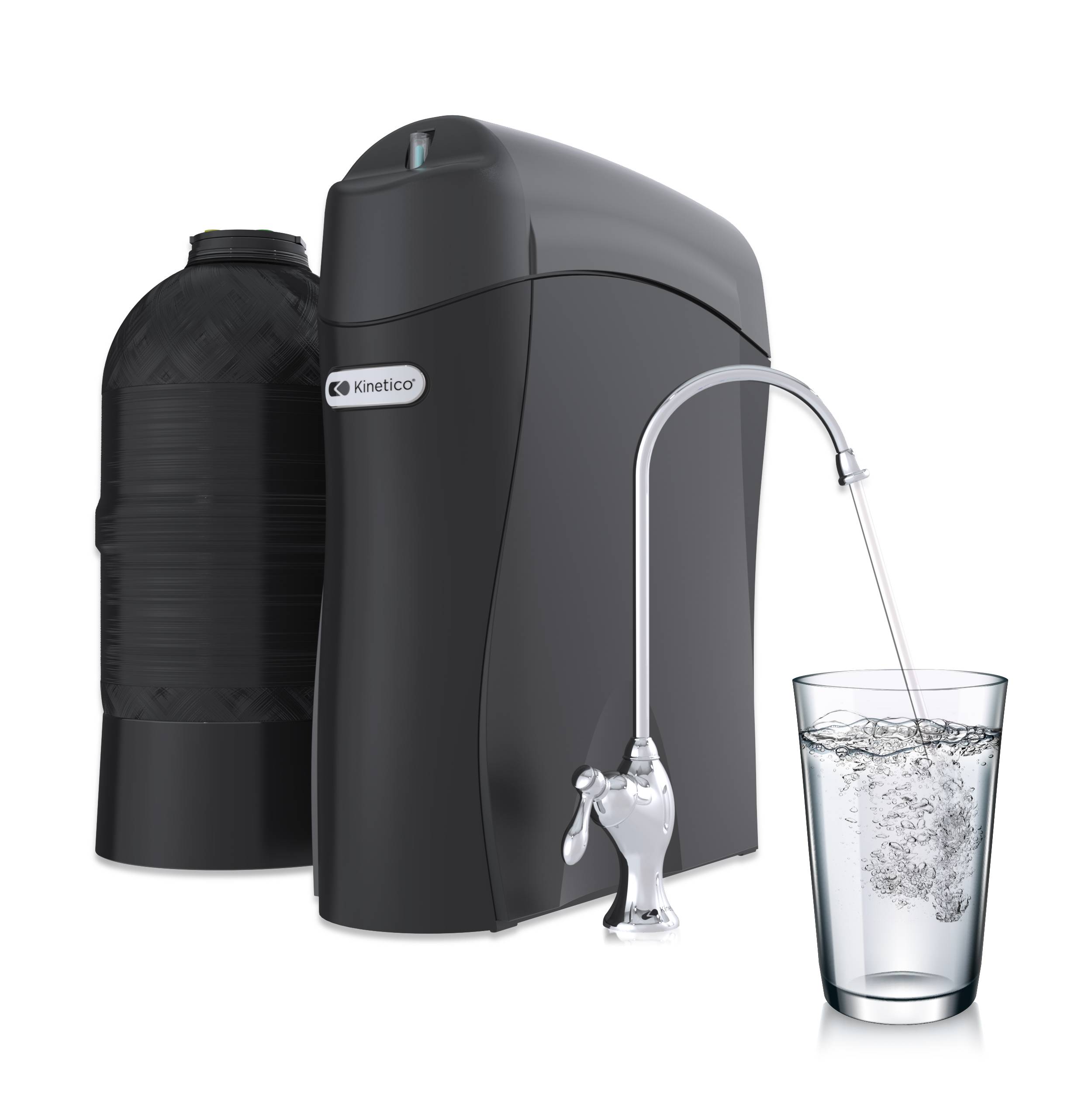Hard water contains calcium, magnesium, and other dissolved minerals. The water is safe to drink, but it can leave a residue on showers and dishes, and deposits inside appliances that use hot water. Over time, that buildup can affect performance and efficiency.
Hard water can quickly clog a point-of-use filter, so you’ll need to use a whole-house water softener. Ion exchange systems, the most common, work by replacing water hardening minerals with soft sodium ions.
Even if your water is very hard, the amount of sodium left behind in softened water should be low. But if you’re concerned, consider choosing a salt-free system. They’re usually just as effective at softening water.
Other “no salt” water softeners are claimed to use magnetic force to change minerals’ molecular structure so that they don’t turn into scale buildup. The International Association of Plumbing and Mechanical Officials (IAPMO), with help from National Sanitation Foundation (NSF) International and other stakeholders, is developing a standard to measure the efficacy of magnetic softeners.
Check out this video to know “How a Water Softener Works?”



